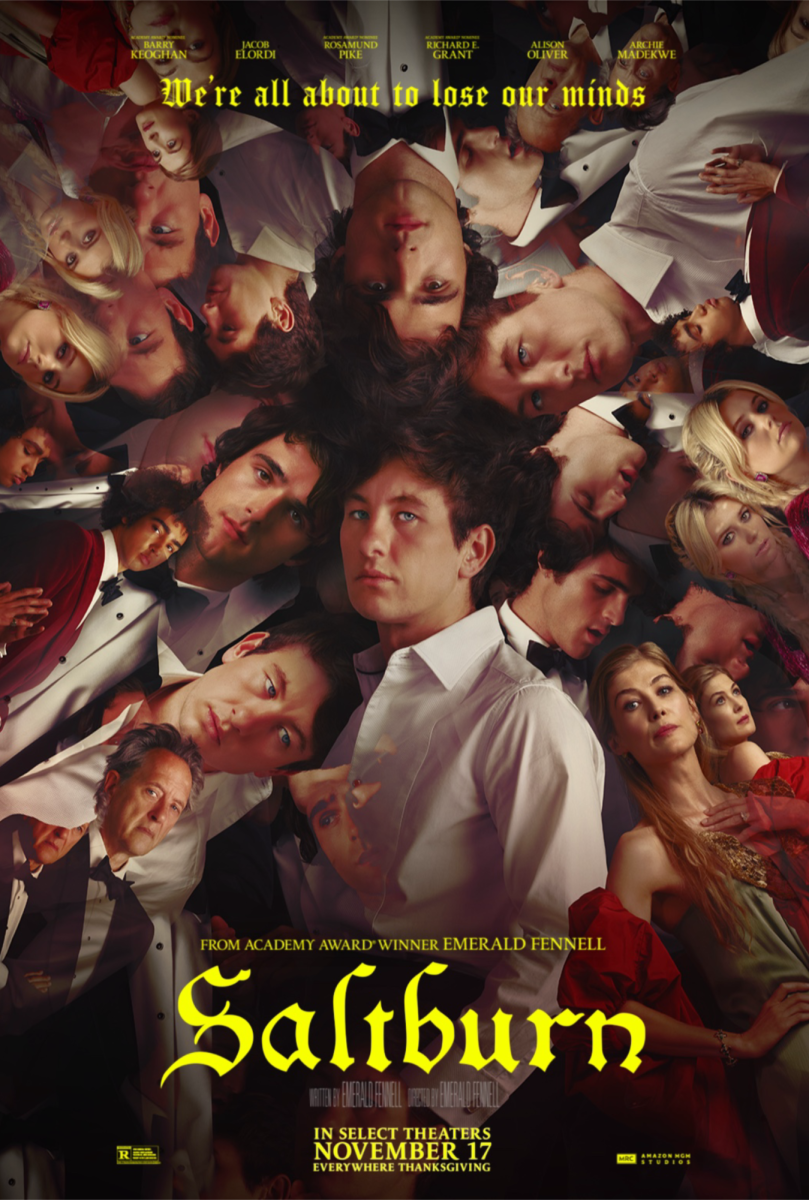In the realm of director Emerald Fennell, nothing is ever as it seems. “Saltburn” serves as another loud and compelling exploration of the peculiar. In Fennell’s signature style, the film offers a glimpse into a narrative that unfolds with bold confidence, leaving audiences to ponder the unconventional. Set in Oxford and Northamptonshire, England, the audience follows Oliver Quick (Barry Keoghan), a student at Oxford who quickly becomes obsessed with popular and eccentric Felix Catton (Jacob Elordi). It is not long before they become friends and Felix invites Oliver to spend the summer at his family’s estate, where soon enough, jaw-dropping events occur.
Putting aside the general consensus of the movie being too lewd, many people also perceive the movie to be one that follows the “eat the rich” trope. The “eat the rich” trope is a metaphorical expression symbolizing the desire for societal change, particularly in addressing economic inequality. It often critiques the excesses of the wealthy elite, using symbolic consumption to convey a call for social and economic justice. This perception is understandable, especially following Fennell’s earlier film, “Promising Young Woman.” This 2020 film addressed the societal response to sexual assault, specifically delving into the complexities of confronting perpetrators and societal norms surrounding victim blaming. And while “Saltburn” does incorporate commentary on class, it is merely a facet of Fennell’s vision; Oliver isn’t looking to dismantle anything. In fact, “Saltburn” could be described as a literal “eat the rich” story, as Oliver desires to completely assimilate into the wealthy circle he orbits. “Saltburn” is about desire and obsession, it especially highlights how desire can often be derailed into something much darker and sinister. The movie unpacks the desire to be near wealth and power, which is part of the reason why it is filmed in such a voyeuristic way. There are many scenes in the movie that people consider to be unnecessary such as the infamous bathtub scene, but the main thing to keep in mind here is that the audience is supposed to feel like they’re on the outside looking in, it is meant to feel meaningless, yet they simply can not look away.
“Saltburn” stands out as a phenomenally crafted dark British comedy that intricately weaves humor with a profound narrative. The film’s brilliance lies not only in its beautiful gothic storytelling but also in its bright and colorful palette that serves not only as a visual feast but also as a deliberate juxtaposition to the narrative that adds depth to the storytelling. An often deeply misunderstood film, “Saltburn” can never be truly understood with just one viewing.














